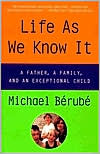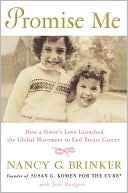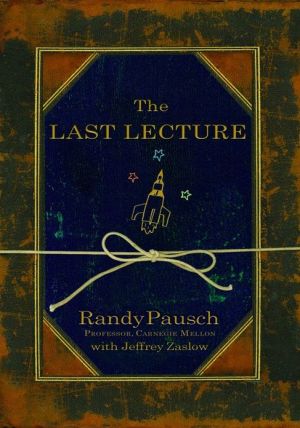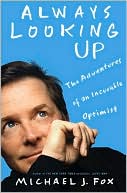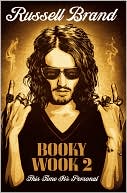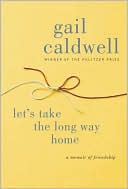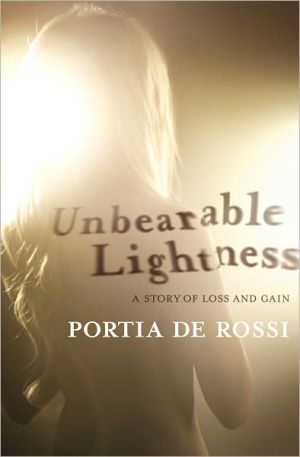Life As We Know It: A Father, a Family, and an Exceptional Child
When Jamie Bérubé was born with Down syndrome in 1991, he was immediately subject to the medical procedures, insurance guidelines, policies, and representations that surround every child our society designates as disabled. In this wrenching yet ultimately inspiring book, Jamie's father, literary scholar Michael Bérubé, describes not only the challenges of raising his son but the challenge of seeing him as a person rather than as a medical, genetic, or social problem.
Search in google:
When Jamie Bérubé was born with Down syndrome in 1991, he was immediately subject to the medical procedures, insurance guidelines, policies, and representations that surround every child our society designates as disabled. In this wrenching yet ultimately inspiring book, Jamie's father, literary scholar Michael Bérubé, describes not only the challenges of raising his son but the challenge of seeing him as a person rather than as a medical, genetic, or social problem. Publishers Weekly The twofold purpose of this impassioned reportage by the parent of a child with Down's syndrome is eloquently achieved by Brub (Higher Education Under Fire). First, he paints a clear picture of his beloved son, Jamie, and of the first four years of his obstacle-strewn life; second, he thoughtfully raises difficult questions "about our obligations to each other individually and socially, and about our capacity to imagine other people." Brub's investigation into the contradictory social effects evoked by clinical procedures in utero, genetic testing and the whole concept of "disabled" children parallels the poignant, intimate chronicle of how he, his wife (also a Ph.D.) and older son cope with the challenge of raising Jamie, whom he describes as "gradually emerging, like a slowly developing Polaroid of a child, into a vivid and indelible creature with a sense of humor." Brub, a professor of English at the University of Illinois, frames advocacy and righteous anger with wry humor. In doing so, he accomplishes the difficult feat of combining an extraordinarily personal narrative with an intelligent, knowledgeable discussion of public issues raised by his private experience. (Oct.)
We Americans argue about representation all the time: the representation of poor people in Congress, the representation of African-Americans in the wake of the O.J. trial, the representation of African-Americans who aren't represented by the best lawyers money can buy.\ Representations matter. Our world, as William Wordsworth once put it, is that which our eyes and ears half create and half perceive; and it is because Wordsworth is right that we need to deliberate the question of how we will reprsent the range of human variation to ourselves. How we understand people with Down syndrome will become part of what it means to have Down syndrome.\ In these pages I have tried to represent my son James to the best of my ability. Nothing I write will redraw a political district; nothing I write will change the chemical composition of Jamie's cells.\ My job, for now, is to represent my son, to set his place at our collective table. But I know I am merely trying my best to prepare for the day he sets his own place. For I have no sweeter dream than to imagine that Jamie will someday be his own advocate, his own author, his own best representative.\ From the Hardcover edition.
\ Publishers Weekly - Publisher's Weekly\ The twofold purpose of this impassioned reportage by the parent of a child with Down's syndrome is eloquently achieved by Brub (Higher Education Under Fire). First, he paints a clear picture of his beloved son, Jamie, and of the first four years of his obstacle-strewn life; second, he thoughtfully raises difficult questions "about our obligations to each other individually and socially, and about our capacity to imagine other people." Brub's investigation into the contradictory social effects evoked by clinical procedures in utero, genetic testing and the whole concept of "disabled" children parallels the poignant, intimate chronicle of how he, his wife (also a Ph.D.) and older son cope with the challenge of raising Jamie, whom he describes as "gradually emerging, like a slowly developing Polaroid of a child, into a vivid and indelible creature with a sense of humor." Brub, a professor of English at the University of Illinois, frames advocacy and righteous anger with wry humor. In doing so, he accomplishes the difficult feat of combining an extraordinarily personal narrative with an intelligent, knowledgeable discussion of public issues raised by his private experience. (Oct.)\ \ \ \ \ Library JournalOne would not expect a book on Down's syndrome from Berube (Higher Education Under Fire, Routledge, 1995). But then, Berube wasn't expecting his son, Jamie, to be born with the condition. This book is the story of Jamie's first years and his family's attempt to give him a normal life. Yet Berube has written more than a "this is what my family experienced and how we coped" book. He tackles the troubling issues associated with disability, lending his knowledge of the history and philosophy of Western civilization to the debates surrounding prenatal testing, disability law, mainstreaming vs. inclusion policies, and IQ testing. The questions he raises are so troubling that they are often ignored by society, even by those with disabled children. Not truly a parenting book or just for special parents, this should be read by policy makers. For most collections, especially those with disability law and policy sections.KellyJo Houtz Griffin, Auburn, Wash.\ \ \ Kirkus ReviewsAn engaging personal account of raising a son with Down syndrome, by a loving father for whom the experience raises serious questions about the nature of social justice, natural rights, and our obligations to one another.\ Although Bérubé (English/Univ. of Illinois) and his 36-year-old wife, Janet, chose not to have amniocentesis, their decision to forgo prenatal testing, and by implication abortion, is not one he would mandate for others. He argues persuasively that there are some areas of human life in which individuals must be free from political coercion and must be given the private legal space to make exceedingly difficult life-and-death decisions. For him, a larger concern than the abortion issue is the risk that disabled children like his Jamie will come to be regarded by society as unproductive citizens and therefore unaffordable luxuries. By writing about Jamie, he hopes to correct that notion, arguing that such children can become productive and making Jamie's claims on society loudly and clearly. Interwoven with this story of Jamie's physical and cognitive development in the first four years of his life are Bérubé's discussions of the changing laws concerning the rights of the disabled and the various ways in which disabled children are educated. He gives an especially lucid picture of the variability and inconsistency with which individual states handle special education and of the incentives for school districts to segregate students by mental or physical ability. By raising questions about what it means to be human and by showing us that his son is indeed fully human, the author helps us to understand what it is to be a person with Down syndrome.\ A staff nurse at the hospital where Jamie was born, taking notes on how the Bérubés were coping, wrote that they seemed "to be intellectualizing." Bérubé's ability to do so is precisely what distinguishes this thought-provoking account from the usual overcoming-handicaps narrative.\ \ \
